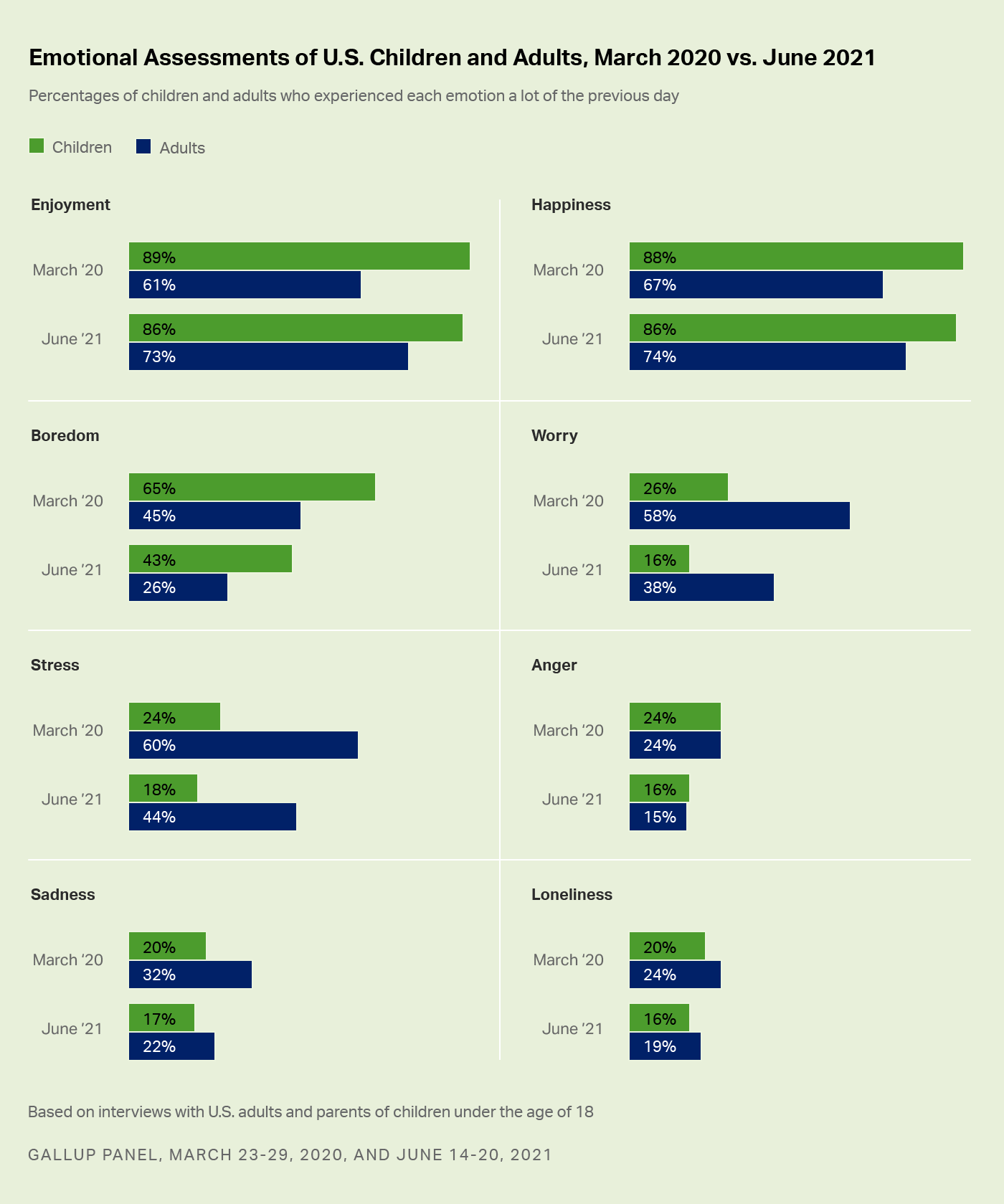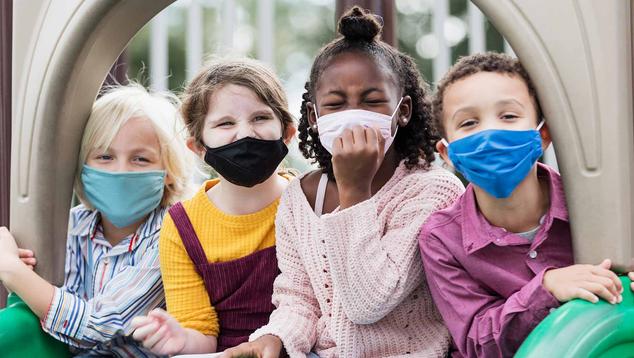Story Highlights
- Negative emotions in children less prevalent now than early in pandemic
- Children's positive emotions stable compared with March 2020
- Adults' positive emotions up, negative emotions down versus March 2020
WASHINGTON, D.C. -- U.S. children are experiencing far less boredom, worry, stress and anger today than they did at the start of the pandemic, according to parents' reports of their children's emotions. Meanwhile, enjoyment and happiness continue to be prevalent among children, with little change since March 2020.
As Americans are increasingly being vaccinated and life is returning to some semblance of normalcy, U.S. adults say their own emotions have improved even more starkly. Their self-reports of boredom and all of the negative emotions measured -- sadness, loneliness, worry, anger and stress -- are down significantly, while their reports of enjoyment and happiness have increased.

Bar chart. U.S. adults' reports of themselves and their minor children experiencing eight emotions -- enjoyment, happiness, boredom, worry, stress, anger, sadness, and loneliness -- during a lot of the previous day in March 2020 and June 2021. Both adults and children feel more positive now than at the start of the pandemic.
These findings are based on data collected using Gallup's probability-based web panel survey June 14-20, 2021, and, previously, March 23-29, 2020, with U.S. adults, including parents of children under 18 years of age.
Children Are Now in a Better Place Emotionally
What is "normal" for children's emotional experiences is not clear, as Gallup does not have pre-pandemic readings on these measures. However, these latest findings suggest that the abrupt upheaval caused by the pandemic triggered troublesome emotions for many children.
Five negative emotions -- worry, stress, anger, sadness and loneliness, which between 20% and 26% of parents said their children exhibited during a lot of the previous day in March 2020 -- are now seen in 16% to 18% of U.S. youth.
Reports of boredom, which befell 65% of children under the age of 18 amid the widespread nationwide closures at the start of the pandemic, are understandable in the context of in-person school and activities being halted for most students. These reports have dropped by more than 20 percentage points (43%).
Although boredom can be viewed in negative terms, it may also be beneficial for children, as it can prompt creative play. This may be one reason why children's enjoyment (89%) and happiness (88%) were not curtailed in March 2020. Parents' latest reports of these positive emotions in their children are essentially unchanged, at 86% each.
Adults Now Experiencing Fewer Negative Emotions, but More Than Children
Gallup tracks U.S. adults' life evaluations and has found that the percentage rating their lives positively enough to be considered "thriving" is currently at its highest point in over 13 years. This is a marked improvement from last year's low rating taken around the start of the pandemic and is closely tied to Americans' evaluations of their emotional state.
In particular, daily worry and stress, which majorities of all U.S. adults felt during much of the previous day in March 2020, are now reported by 38% and 44%, respectively. Likewise, sadness, loneliness and anger have fallen by five to 10 percentage points, and boredom has dropped by 19 points. At the same time, enjoyment has increased from 61% to 73% and happiness from 67% to 74%.
The emotions of parents of minor children largely mirror those of all U.S. adults; however, parents currently report a slightly higher level of stress (50% vs. 44%).
Bottom Line
While the U.S. Food and Drug Administration has still not approved a COVID-19 vaccine for the youngest Americans, the agency did authorize one for children aged 12 to 15 in May, and those aged 16 and older have been eligible since December. This has allowed many young people to completely resume their normal activities, which has undoubtedly contributed to their less negative emotional state. Once children under 12 can be vaccinated, the 43% of parents who say their children were bored much of the previous day will likely decline even further.
To stay up to date with the latest Gallup News insights and updates, follow us on Twitter.
Learn more about how the Gallup Panel works.




